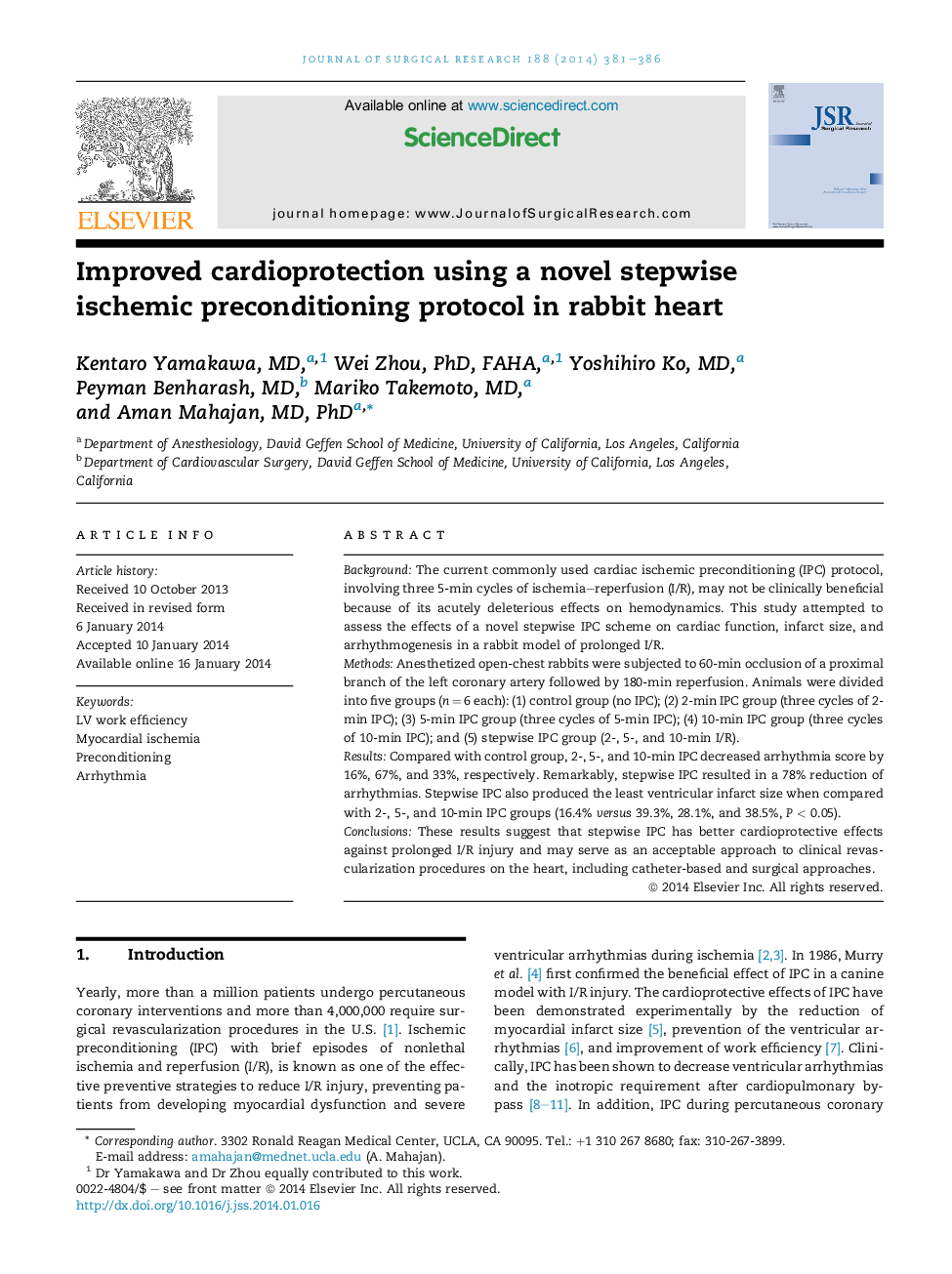| Article ID | Journal | Published Year | Pages | File Type |
|---|---|---|---|---|
| 6254035 | Journal of Surgical Research | 2014 | 6 Pages |
BackgroundThe current commonly used cardiac ischemic preconditioning (IPC) protocol, involving three 5-min cycles of ischemia-reperfusion (I/R), may not be clinically beneficial because of its acutely deleterious effects on hemodynamics. This study attempted to assess the effects of a novel stepwise IPC scheme on cardiac function, infarct size, and arrhythmogenesis in a rabbit model of prolonged I/R.MethodsAnesthetized open-chest rabbits were subjected to 60-min occlusion of a proximal branch of the left coronary artery followed by 180-min reperfusion. Animals were divided into five groups (n = 6 each): (1) control group (no IPC); (2) 2-min IPC group (three cycles of 2-min IPC); (3) 5-min IPC group (three cycles of 5-min IPC); (4) 10-min IPC group (three cycles of 10-min IPC); and (5) stepwise IPC group (2-, 5-, and 10-min I/R).ResultsCompared with control group, 2-, 5-, and 10-min IPC decreased arrhythmia score by 16%, 67%, and 33%, respectively. Remarkably, stepwise IPC resulted in a 78% reduction of arrhythmias. Stepwise IPC also produced the least ventricular infarct size when compared with 2-, 5-, and 10-min IPC groups (16.4% versus 39.3%, 28.1%, and 38.5%, P < 0.05).ConclusionsThese results suggest that stepwise IPC has better cardioprotective effects against prolonged I/R injury and may serve as an acceptable approach to clinical revascularization procedures on the heart, including catheter-based and surgical approaches.
